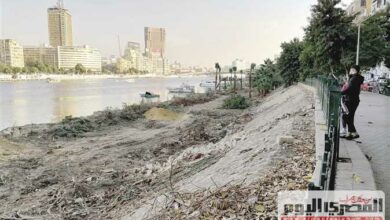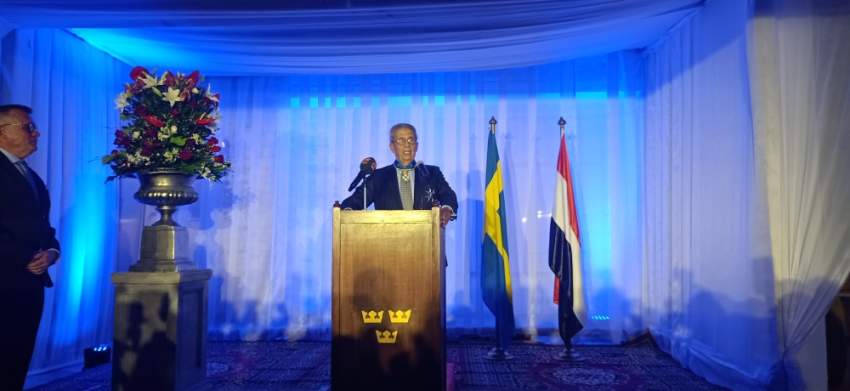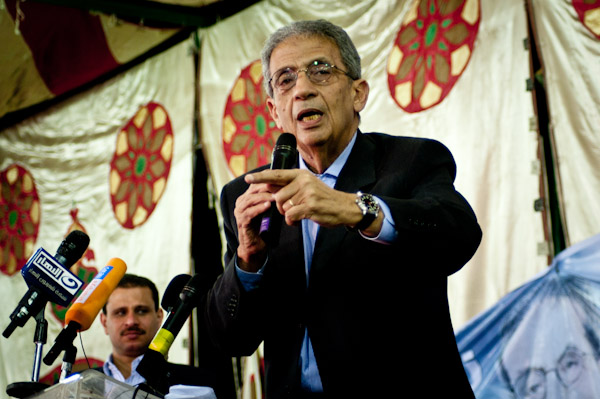In the second part of an exclusive interview, Arab League chief and ex-foreign minister Amr Moussa spoke to Al-Masry Al-Youm about the league’s agenda, inter-Arab relations and Egypt’s role in a rapidly changing Middle East.
Al-Masry Al-Youm: Why does Egypt appear so isolated these days? Why is it so engrossed in local affairs?
Amr Moussa: You should ask an Egyptian government official this question–not the secretary general of the Arab League. Although I’m not sure "isolated" is the right word.
Al-Masry: Did the league have an official position vis-à-vis the recent Egypt-Algeria football crisis?
Moussa: Should we even call what happened an "issue"? And why was the public so anxious to follow it? What is the league supposed to do? Does it have to look into every piece of undocumented news amid uproars and rivalries? You can’t resort to the Arab League every time there’s a problem.
The whole affair was steeped in ambiguity. It’s true that Egypt’s defeat upset the people and that the match was followed by unprecedented riots and media clamor, which should have been restrained to some extent. Things spiraled out of control. In terms of both athletics and media, the crisis was handled poorly by both sides. I spoke with senior officials from both countries, and they denounced the incidents. But in the beginning, there was no chance for positive, conciliatory action.
After several discussions, I contacted Libyan leader [Momar] Ghaddafi and told him that we could not leave the situation as it was. He responded by saying that the matter was insoluble in the short term, recommending that any action be postponed until the Eid el-Adha feast was over in hopes that things might calm down.
So we waited, but both sides continued to move away form each other. And their mutual relations–and inter-Arab relations in general–were affected as a result.
Al-Masry: Did the affair confirm the fragility of Arab-Arab relations?
Moussa: Inter-Arab relations are fragile, because they’re governed largely by ignorance.
Some people claimed that the Algerians had bought knives upon their arrival in Sudan. I could believe that a dozen or so of them did so, but it’s insane to allege that the Algerians disembarked from their planes then headed to the Sudanese markets to buy knives and other weapons. One Algerian newspaper claimed that Algerian fans had been killed in clashes following the first match in Egypt, which is no closer the truth.
We shouldn’t be unjust to the Algerian ambassador, who came out and stated publicly that no one had died. Ultimately, both sides failed to deal adequately with the crisis.
Al-Masry: How do you feel as head of the Arab League when a football match can take such a toll on inter-Arab relations?
Moussa: I fear that frivolousness and fragility have become our defining characteristics. Add to this the fact that nobody bothered asking whether the Egyptian football team did its best to win the match. The truth is, they never stood a chance of winning with their performance.
Al-Masry: Is much time and effort still required to resolve the dispute?
Moussa: Whatever it takes, we’re keeping abreast of developments day by day. In fact, both sides have already shown a desire to end the dispute, especially on the official level. This sentiment has been conveyed at meetings and in official correspondences.
I’m really surprised to see some people calling for a boycott of Algeria. I have to wonder if this is the result of rational thinking.
Al-Masry: What is the position of the Gulf States on the matter?
Moussa: They have expressed their shock and surprise over the affair. As for mediation efforts, these were only discussed with the Libyan leader.
Al-Masry: Is Egypt’s historical role as regional leader in retreat?
Moussa: No. This is totally wrong. I agree that the nature of the Egyptian role has come into question recently, but a reading of Egyptian history can shed light the issue.
Egypt was one of the first countries to establish a sovereign parliament in the mid-19th century, when Asia and Africa were still largely dormant. Egypt staged the largest popular revolution ever against the British occupation in 1919. It adopted democracy through its 1923 constitution; established a modern state in the 1930s and 1940s; enacted work laws; established an independent judiciary; and founded one of the oldest universities in the world.
After the 1952 revolution, the Gamal Abdel Nasser era flourished until the sad events of 1967. This was followed by the era of Anwar Sadat and the battle for liberation, then by the rule of Hosni Mubarak, which sought to restore order.
Now we’re in the 21st century, and I’m sure Egypt will spare no effort to continue being one of the most active nations of the day.
Translated from the Arabic Edition.




